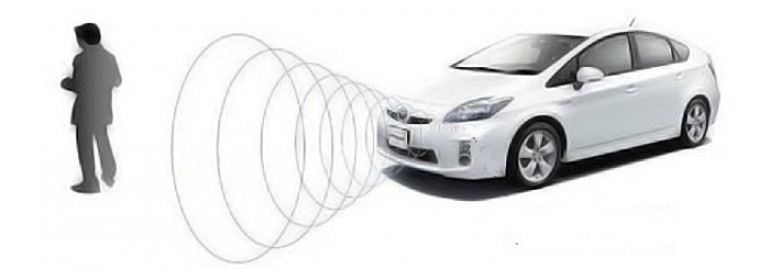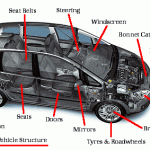Fixing a car is much easier when you know what the problem is. All too often a car owner will have real problems with their automobile driving down the road and the second they pull into a repair shop the car starts running fine. This is a common phenomenon and frustrates mechanics everywhere. The only clue the mechanic may have to troubleshoot and repair the problem is the noises the operator of the vehicle heard while the problem existed.
Loud and Screeching
Some noises make the job easy and narrow the focus of the mechanic. If the noise sounds like metal rubbing against metal when you hit your brake pedal there are only a few likely causes. The most common culprit in this scenario is a rotor assembly with bad brakes. When the pad of a brake shoe wears down to bare metal the exposed metal grinds against the rotor and sounds off with a loud grinding that most of us have heard on cars as they pull beside us at a stop light. The noises are usually high pitched and shrill to the ears.
If the brakes look fine and the rotors do not show unusual wear patterns the problem is likely to be in the bearings of the rotor which is a serious issue or in the driveshaft assembly coming out of the transmission in a front wheel drive automobile. Any of the above scenarios can have potential dangerous outcomes if left unchecked and unrepaired. There are too many people who have been driving down the interstate at high rates of speed only to discover that their wheels fall off at the worst time.
Loud Ticking
Ticking noises can be difficult to isolate and identify. If you hear loud ticking noises when you first start your car and the sound gets quieter as the motor warms up you may have an exhaust problem. When you hear the ticking at first start of the engine the metal parts are cool and have not swollen. As the heat causes the manifolds and exhaust pipes to expand, the leaks can collapse as the gaps tighten, and the noise fades away. To narrow the focus to the exhaust and try to isolate the issue, it may be helpful to follow your nose while the motor is cold in addition to using your ears. As the motor has to be running for the ticking to occur you must be very careful to not reach into the motor compartment and possibly get caught up in the moving parts around the fan and belt drive assembly. It may be best to get a professional involved once you identify the general problem.
Exhaust is not the only offender making ticking noises. To help troubleshoot, it may be a good idea to see if there are other clues. Does the ticking only happen when you turn on your air conditioner or heater and sound as if it may be inside of the car? If so, the blower assembly may be coming apart or have some debris lodged in the fan assembly. If the ticking is coming from inside the engine compartment by the radiator and belt assembly with the a/c on it could be the compressor clutch assembly. Follow your ears and use your eyes, but never reach into the fan assembly of a running car.
Backfire
A loud bang with a pungent smell of fuel and possibly discolored black smoke out of the exhaust may be a backfire. There are several problems that can cause a backfire, and nearly all of them require troubleshooting experience or equipment. A poor mixture of gas and air causes fire to combust on the wrong stroke and travel out of the exhaust pipe. Get help immediately for recurring backfires.
Sputtering
When your car loses power and has discolored white or black smoke, you may have major issues. Bad engine timing can be caused by numerous issues, and the aforementioned symptoms may not even be a result of bad timing. Anything from ignition control modules to head gaskets can be at fault. The only thing you can do is pay attention to the song your car is singing and replay the music for your mechanic when you get to the shop.
The types of noises that a car can make cannot fit into a single list because there are numerous things that can go wrong. There are noises that come and go and sounds that simply won’t go away. The key is to observe as many other details as possible. Feel for vibrations, take note if the sounds occur simultaneously with other actions, and try to identify the direction the sound is coming from. Does the noise only happen when you hit your brakes, go up a hill, accelerate or decelerate, turn on accessories, or engage your transmission. Even trained professionals can have challenges in identifying the origin of noises because they can travel and do not always correlate with the cause. If you are in a vehicle and hear a sound, do not be dismissive. Serious problems do not always sound an alarm, but if your car starts talking to you, it is wise to listen. Once you have a good idea of the source of the problem, your best option is to find a qualified mechanic or body shop.






